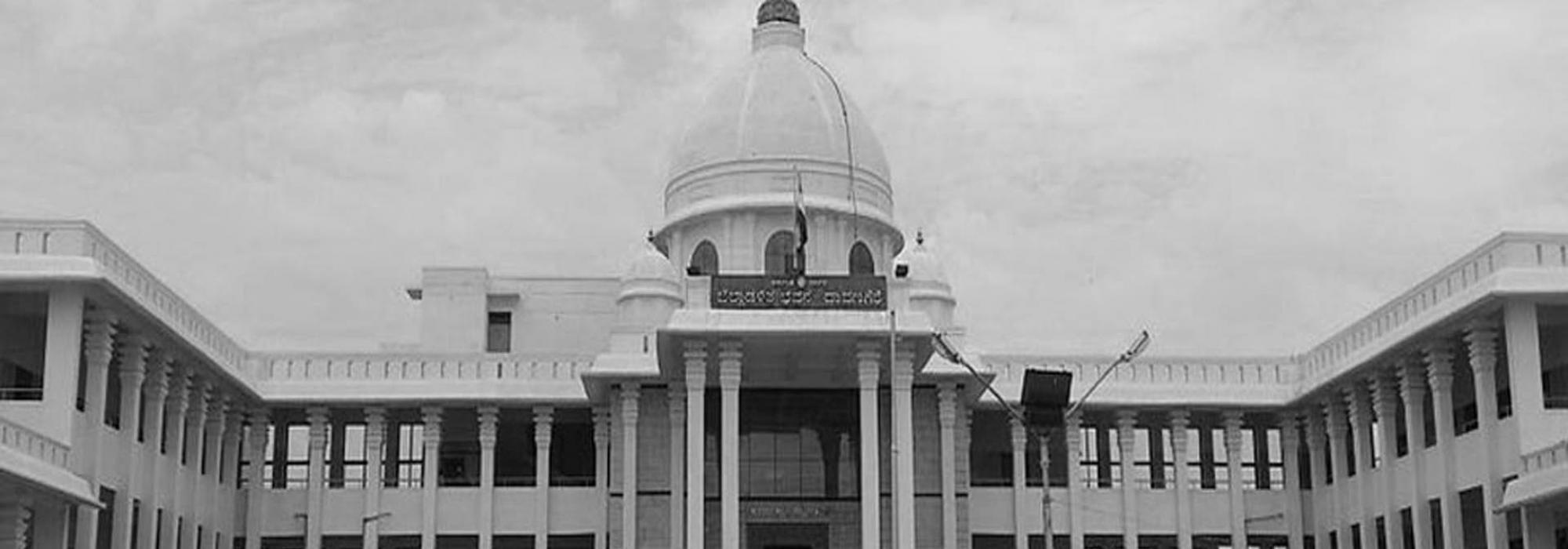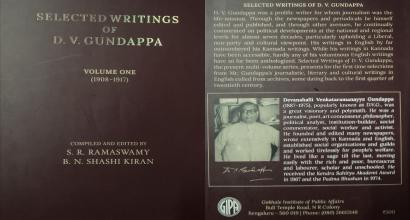In 1922, the Kannaḍa Sāhitya Sammeḻana[1] was held at Davanagere. That year, Mysore’s Vṛddha Pitāmaha[2] Sri. M. Venkatakrishnayya presided over the conference. The service he rendered to the Mysore region at large and to Kannada language and literature is widely known. Sixty to seventy years of his ceaseless, multidimensional service to society, is remembered as a virtuous life[3] in our state’s history. Nobody had imagined that there could be people in the state who would complain about his selection as the president of the conference.
Having decided a certain venue and date for holding the conference, it was a tradition of the Parishad[4] to send an ‘Advance Party’ to that town, two to three days before the day of the event, to oversee and ensure all arrangements were in order. Accordingly, six to seven of the Parishad’s officials and workers reached Davanagere. They found that no arrangements had been made. The venue for the conference itself had not been ascertained. Utensils that were required to prepare the meals for the members of the advance party were unavailable. And when they went in search of rice, lentils, and other groceries, they found all shops closed. From that evening onwards, it was Davanagere Bandh.[5] A few members of the Parishad’s advance party dined at Advocate Jade Subba Rao’s house while a few others partook of their meals at the residence of the Excise Inspector, Venkatasubbayya of Rajapura. On the third day, a report of this chaos reached the Parishad’s office in Bangalore.
The Parishad officials were both baffled and worried. Janab Syed Taj Piran Saheb was then the Deputy Commissioner for the district of Chitradurga. Even if we had to write to him, we had no idea as to where he would be camping that day. After a lot of thinking, finally it was decided that we should visit the Diwan himself. Karpura Srinivasa Rao, Venkatanaranappa, and I set out to meet Diwan A R Banerjee. We explained to him the situation in detail. After a moment of thinking, he said, “Well, you say that the Parishad functions with the patronage of His Majesty, the King. An organization under the royal aegis if disrespected in our own state will not be tolerated by the government. However, so far the situation at Davanagere hasn’t come to the government’s notice through an official channel. Go at once to Davanagere. If you find anything amiss, inform the same to the government and everything necessary for the conference will be arranged.”
Upon his reassurance, Karpura Srinivasa Rao, Venkatanaranappa, and I reached Davanagere on the third morning. The situation was still chaotic. Delegates from several places, near and far, had started flowing in. Around sixty to seventy of them had already arrived. In a bid to ensure that the conference proceeded smoothly, Jade Subba Rao was trying hard to manage the delegates. That morning, at around nine or ten, a panic meeting[6] took place in the attic of a renowned trader Sriman Brahmappa Tavanappanavar’s house. The meeting was attended by a number of important people. One of them was Bevur, ICS.[7] He eventually served the Government of India as the Director-General of Post Offices. During the meeting, many advised the path of calmness and unanimity; they also attempted to negotiate in several ways. Nothing bore fruit. Then we appealed to Diwan Banerjee by sending a summarized message through telegram. Everyone’s mind was filled with anxiety.
At around four or five that evening, Janab Syed Taj Piran Saheb arrived at the high school where we had camped. “I am a student of Sri. Venkatakrishnayya. I studied under him. His coming here is a matter of great pleasure to me. I have come here especially to meet him,” he exclaimed and began to say many such things. Even the Bandh had begun to fade. We obtained the vessels and groceries that we needed.
The conference was on the next day. It went on as planned. People from a certain section of the town barely attended the conference. Their inner anger hadn’t cooled down yet. That apart, the conference went well.
This is an English translation of the twenty-first chapter of D V Gundappa’s Jnapakachitrashaale – Vol. 3 – Sahityopasakaru. Edited by Hari Ravikumar.
Footnotes
[1] The biggest annual conclave of Kannada literature; Sāhitya means ‘literature’ and Sammeḻana means ‘conference.’
[2] Vṛddha Pitāmaha (literally ‘old grandfather’) refers to a respected father-figure.
[3] The original has ‘puṇya jīvanada smaraṇe.’
[4] A reference to the Kannada Sahitya Parishad, the premier literary institution in Karnataka. DVG has written a fair bit about the creation of the Parishad in the first volume of Jñāpakacitraśāle.
[5] ‘Bandh’ refers to a ‘shut down’ of the city or town; it is typically carried out in protest by a group of people. During a Bandh, most of the shops are closed.
[6] The original has the word ‘pañcāyat,’ a technical term used for a village-level judicial committee consisting of five members. In this context, it is used metaphorically.
[7] ICS stands for Indian Civil Service (earlier Imperial Civil Service). They comprised civil servants in British India (until 1947).









































